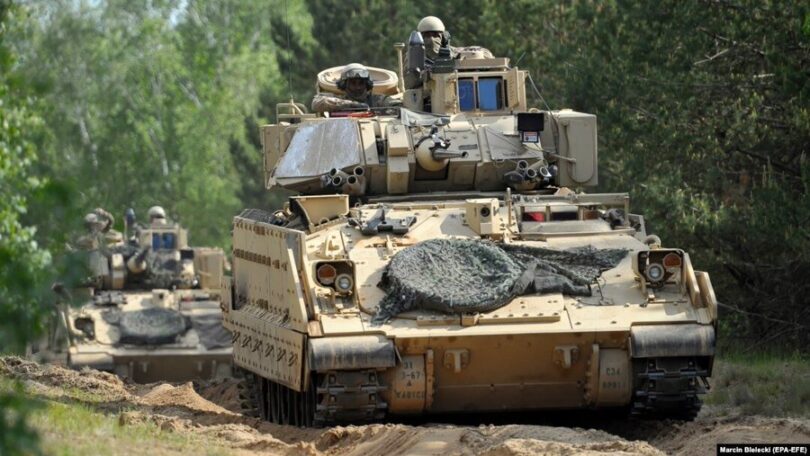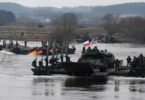EUROPE: Europe is fortifying its defense capabilities in response to escalating tensions with Russia. Germany, the Netherlands, and Poland have announced plans to establish a military corridor facilitating the rapid movement of troops and equipment between Europe’s North Sea ports and NATO’s eastern flank.
The corridor, outlined in a declaration of intent signed on Jan. 30, aims to address infrastructure bottlenecks and bureaucratic hurdles hindering cross-border military transport. With a heightened sense of urgency following Russia’s invasion of Ukraine, European nations are prioritizing military mobility to bolster their readiness and deter potential aggression.
The initiative underscores the need for streamlined processes and enhanced infrastructure to ensure swift response in crisis scenarios. As Defense Minister Kajsa Ollongren emphasized, the ability to expedite equipment deployment from ports to hinterlands is paramount for effective defense preparedness.
By standardizing conditions for military transports and prioritizing military logistics, the participating countries seek to demonstrate their capability to respond promptly to security threats. Germany, drawing from its Cold War experience, recognizes the imperative of facilitating military mobility to reassure allies and deter potential adversaries.
Europe’s strategic ports, including Rotterdam, Antwerp, and Hamburg, are pivotal hubs for troop deployment and logistics operations. As Secretary of Defense Representative in Europe Rachel Ellehuus highlighted, efficient throughput across the Atlantic is crucial for reinforcing NATO’s defensive posture in Europe.
The announcement comes amid NATO’s preparations for Steadfast Defender, a large-scale exercise designed to test defense plans against near-peer adversaries. With about 90,000 troops participating, the exercise will showcase NATO’s readiness and commitment to collective defense.
The EU’s commitment to funding military mobility projects underscores the importance of enhancing transport infrastructure to bolster resilience and deterrence. As Jiří Šedivý, chief executive of the European Defence Agency, emphasized, the urgency of military mobility has been underscored by Russia’s aggression in Ukraine.
As tensions persist, Europe remains steadfast in its efforts to strengthen defense capabilities and uphold regional security. The establishment of the military corridor signifies a proactive approach to safeguarding peace and stability in the face of evolving threats.
Courtesy: Realtime Global Data Intelligence Platform







